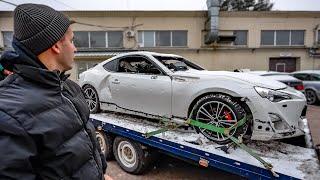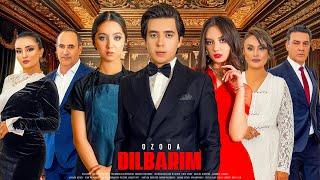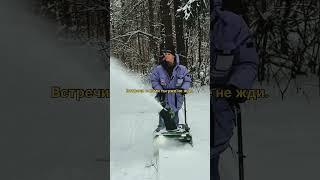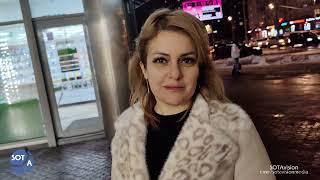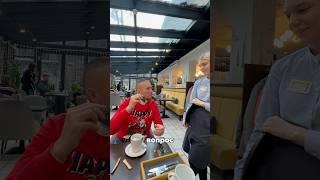
The Bulgars & Bulgarians: History of Bulgaria
Комментарии:

SAM7 is a good rifle 👍🏻 so is the slr series of rifles. Thanks Bulgaria 🇧🇬
Ответить
Poor country poor history.
Ответить
Bulgarians claim Macedonian national heroes like Goce Delcev and Samuilo but they are wrong.
Ответить
Bulgarians have nothing to do with the Turk tribes stop miss informing people mate .
Ответить
Great history but very poor country.
Ответить
Hello. I am Vietnamese and I find this video very enlightening. But I have some questions.
1) A Bulgarian friend of mine told me that Bulgarians are Aryans from Afghanistan. They are not Slavs. But this video is now saying they are actually Far East Asians of Mongol/Turkic origins?
2) Modern day Bulgarian language is mostly Slavic and has very little if any to do with ancient Asian Bulgarian?
3) Do modern day Bulgarians identity themselves more with White Europeans or with Asian Mongol/Turks. The Hungarians are proudly calling themselves Asians from the Altai region.
-- With love from Vietnam

Very good video my albanian friend! Few things are not completely right, but not wrong at all. Me as a bulgarian from Macedonia(4 generations before), I like the Tsar Samuel part! I wish you the kosovo albanians and the bulgarians there indepence soon as possible(also from the corruption, you know whay I mean 😌)
Ответить
ASPARUKH IS AN IRANIAN NAME
Asparukh
Gender Male
Origin
Word/name Iranian
Meaning
Possessor of Shining Horses (aspa + rauk)
Asparukh is a Middle Iranian male name,[1] attested in ancient Georgia and early medieval Bulgaria. It is a compound with the two elements: "aspa" (horse) and "rauk" (shine), meaning "he who has shining horses".[2] Some other researchers claim that the name is derived from "aspa" (horse) .[3]
The two historically attested persons bearing this name are:
Asparukh of Iberia, a viceroy of Armazi in Iberia (Georgia), contemporary of the Roman emperor Hadrian (117–138 AD).
Asparukh of Bulgaria, founder of the First Bulgarian Empire in the 680s.
References
Hyun Jin Kim (2013). The Huns, Rome and the Birth of Europe. Cambridge University Press. p. 168. ISBN 9781107009066.
Encyclopedia Iranica online: Asparukh a Middle Iranian proper name attested in ancient Georgia and early medieval Bulgaria.
Bŭlgarski etimologichen rechnik, tom 1, Institut za bŭlgarski ezik (Bŭlgarska akademia na naukite) Vladimir Ivanov Georgiev, 1962, p.18.

Poor country yet living of EU money.
Ответить
Poor and nothing can change that.😂😂😂😂
Ответить
Bulgarians have Tatar origin,no?
Ответить
Good warriors like all Mongols.
Ответить
Bugari su Srbi 🇷🇸🇷🇸🇷🇸
Ответить
Bulgaria shouldn't be let to join Schengen,ever.
Ответить
Ok,so they are not Turks but Turkish,what difference?
Ответить
The Bulgars were a Turkic tribal confederation that gave rise to the Balkan Bulgar and Volga Bulgar states. The ethnonym derives from the Turkish bulgha-, "to stir, mix, disturb, confuse." The confederation appears to have taken shape among Oghur tribes in the Kazakh steppes following the migrations that were touched off by movements of the Hsiung-nu. Later Byzantine sources (Agathon, Nicephorus Patriarchus, Theophanes) closely associate or identify the Bulgars with the Onoghurs, who were enemies of Sassanid Iran in the late 4th century. When or how this connection developed is unclear. If we discount several (most probably) anachronistic notices on the Bulgars in Moses Kliorenats'i (Moses of Chorene), the earliest references to them are perhaps to be found in an anonymous Latin chronograph of 354: "Vulgares." They are absent from Priscus's account of the migration, ca. 463, of the Oghuric Turks into the Pontic steppes, but by 480 they are noted under their own name as allies of Constantinople against the Ostrogoths. Amity with Byzantium was short-lived. By 489 the Bulgars had initiated a series of raids on Byzantine Balkan possessions. Their habitat, at this stage, appears to have been in the eastern Pontic steppes stretch-ing into the Azov region and North Caucasus. It is here that Jordanes and Pseudo-Zacharius Ithetor place them in the mid-6th century. Shortly afterward, they were overrun and subjugated by the Avars and then the Turks. When Turk rule weakened, sometime after 600, the Avars appear to have reestablished some control over the region. It was against Avar rule that the Bulgars-under their leader Qubrat, whom Heraclius had been cultivating for some rime (he and his uncle were baptized in Constantinople to 619)—revolted ca. 631-632 and founded the Onoghundur-Bulgar state. Some time after Qubrat's death (660s), this Pontic - Maeotun Bulgaria, whose Balkan descendents would also claim Attilid origins, came into conflict with the Khazar khaganate, successor to the Turk empire in western Eurasia. The Khazars emerged victorious from the contest, and parts of the Bulgar union broke up and migrated. One grouping under Asperukh in 679 crossed the Danube into Moesia and, having subjugated a local Slavic confederatton, there laid the foundation for the Balkan Bulgarian state. Yet other groups joined the Avar state in Pannonia (where some would prove to be rebellious subjects or took up restience in Italy around the five Rasennate cities, to live as Byzantine subjects.The other Bulgars either remained in the Pontic steppe zone the (the “Black Bulgars” of Byzantine and Rus’ sources) or later migrated (perhaps as early as the mid-7th century or as late as the mid-8th to early 9th century) to the middle Volga region, giving rise there to the Volga Bulgarian state, which remained, however a vassal of the Khazars. Balkan Bulgaria soon became an important element in Byzantine politics, on occasion supporting contestants to the throne and also helping to defeat the Arab attack on Constantinople of 717-18.The iconoclastic Emperor Constantine (741-775) began a series of wars against them that remained a constant theme of Byzantine-Bulgarian relations until the destruction of the first Bulgarian empire by Basil II (976-1025).In 864 the Bulgarian king Boris, outmaneuvered by Constantinople, converted to Christianity. Thereafter, the Turkic Bulgars underwent Slavicization, and Balkan Bulgaria became one of the centers of medieval Slavic. The Volga Bulgars, however, converted to Islam in the early 10th century and created a highly sophisticated, urbane, mercantile Muslim society that, after stout resistance, was conquered by the Mongols in the early 13th century.
Bowersock, Glen W. & al. Late Antiquity: A Guide to the Postclassical World pp.354 Harvard University Press, 1999. ISBN 0-674-51173-5.

The South Slavic tribal groups moved south and southwest from their Pripet homeland, eventually entering the Byzantine-controlled Balkan Peninsula as either allies of or refugees from the invading Turkic Avars during the second half of the sixth century. Their search for a new, permanent homeland proved successful. Today their descendants solidly inhabit virtually all of the northwestern, central, and southeastern regions of the Balkans.
Turks comprise a third ethnic component of the Balkan population. Although today numerically small-a little over 1 million people (about 2 percent of the total population) they have played a role in shaping the history of the Balkans far beyond their numbers.
In late antiquity the rolling plains of the Danube and Prut rivers in the Balkans' northeast served Turkic tribes from the Eurasian steppes as an open door into the heart of the peninsula and the riches of the Eastern Roman Empire. Huns and related tribes swept through the Balkans in the fifth and sixth centuries, followed by the Avars and their allies in the sixth and seventh. Among these latter were the Bulgars, who established a state south of the Danube. Unlike the Avars, whose settlements in the Balkans proved transitory, the Bulgar state persisted in the face of concerted Byzantine pressures. By the ninth century the Bulgars were challenging the Byzantine Empire for political hegemony in the Balkans, but by that time they also were well on the way toward ethnic assimilation into their Slavic-speaking subject population. The conversion of the Turkic Bulgar ruling elite to Orthodox Chris-tianity at midcentury opened the gate to their rapid and total Slavic assimilation. Within a hundred years of the Bulgar conversion, most traces of their Turkic origins had disappeared, except for their name-the Bulgars had been transformed into Slavic Bulgarians
Oğuz, Pecheneg, and Cuman Turkic tribes appeared in the Balkans between the ninth and eleventh centuries. Most of them eventually suffered an ethnic fate similar to the Bulgars and left little lasting impression, although the Gagauz Turks of Bessarabia, a region lying east of the Prut River (now known as Moldova), and some Turks living today in the eastern Balkans may be direct ethnic descendants of those medieval Turkic interlopers. Additionally, the Ottoman Turks' five-century rule over most of the Balkans established numerous scattered enclaves of Turkish- speaking groups throughout much of the southern portion of the peninsula, with a heavy concentration in the southeastern region of ancient Thrace.

Bulgarians trace their ancestry and derive their name from the Bulgars, a Turkic people that ruled over the South Slavic populations in the region south of the Dan- ube River during the Middle Ages. A unique Bulgarian identity emerged from the cultural fusion of the Bulgars with the ancient Thracian tribes and the Slavic peoples of the area. For centuries, the Bulgarians lived under Turkish domination until the tide turned during World War II, and Bulgaria became an ally of the Soviet Union and part of its "Eastern bloc." Since the collapse of the Soviet Union in 1991, Bulgaria has embraced democ- racy and acceded to the European Union in 2007.
Ответить
In short, it is hard to think of any other ethnolinguistic entity in history that conquered so vast a territory and founded so many empires and states, also contributing to world civilizations. The history of the Turkic peoples was an important factor in world history for more than a millennium until the emergence of Europe as the world's dominant power. What happened in the Turkic world often affected the history of China, Central Asia, the Middle East, South Asia, and Europe. One may also argue that world history began with the "Turko-Mongol" empire created by Chinggis Khan. In the contemporary world, Turkic-speaking nations form six states (Kazakhstan, Kyrgyzstan, Uzbekistan, Turkmenistan, Azerbaijan, and Turkey/Türkiye) and several "autonomous" units in Russia (the republics of Chuvash, Tatarstan, Bashkortostan, Altai, Khakassia, Tuva, and Sakha) and China (the Xinjiang Uyghur Autonomous Region). Turkic peoples also reside as minority groups in several other countries, including Mongolia and Iran, among others. It would therefore be difficult to acquire a comprehensive understanding of world history as well as our present world without studying the history of the Turkic peoples.
Ответить
When did Gypsies come to Bulgaria,15th century or something?
Ответить
Looks poor.
Ответить
Horrible place.
Ответить
If you call that a history...
Ответить
This is not history but an endless river of defeats and failures!
Ответить
According to Antonio Ludovico Muratori a father of italian Historiography wrote in his fundamental books 'Anali d'Italia' Bulgaria was founded in the Balkans 165-175 year AD. In year 481 AD the Roman emperor Zenon honours the bulgarian emperor Budan presenting him Singidunum. From this moment this town becomes Alba Bulgarica or the White Town of Bulgarians or Belgrade. The ancient and deep forest between Alba Bulgarica (Belgrade) and Serdica now Sofia bears the name Magna Selva Bulgarica. BULGARIANS settled in Northern Italy, year 550 AD and in the plains of Milano, Novara, river Ticino and Biella forming Bulgaria d'Italia or Comitatis Bulgariensis. Only Bulgarians apart from Romans had the right to have emperors in the Balkans...
Ответить
I heard some Bulgarians claiming Spartacus was Bulgarian,I couldn't stop laughing.
Ответить
Maybe they think they have glorious history,well,it's not forbidden to think.
Ответить
50%Tatar 50%Mongol
Ответить
Country in collapse.
Ответить
What decline for once great Bulgaria...
Ответить
SERBIAN BOT
Ответить
This video shoud be delete !!!
Many stypid shits speaks here!!!

I find the steppe nomads extremely fascinating.
Ответить
Never Seen a Non Albanian Channel with the name "Kosovo", interesting.
Ответить
Why they call themselves Tracians , while in fact they are slavenized turkish tribe. Tracians and Ilirians were serbian tribes.
Ответить
Bulgars did not create cirilic. It is an 5000 years Vinchan alfabet from which derived cirilic and latin letters.
Ответить
Serbian historians are dreaming again about big victory and fake history . Please learn real history and don't be jealous about other countries✌
Ответить
DIsgusting serb propaganda
Ответить
You should read history before publishing and also put some sources.
Ответить
Vulgarija
Ответить
Tatar were great warriors,Bulgarian Tatar tribe makes no exception.
Ответить
You are dealing with complex area. The country with longest history in the world full with official falsification. Every country wants to steel Bulgarian history.
Ответить
It is so obvious that this video is sponsored by bulgaria enemys(mainly serbia,and/or turkey,thays easily recognisable in a small sensetive details that only enlightened person can see ,to read between the lines
Ответить
ИМАМ познат който е ходил два пъти на Великата китайскастена и го питам на къде са обърнати бойниците на север или на юг .Отивори ми на юг,само реставрираните гледат на север.Това означава че китайците не са нападали аса били нападани от тази велика стена строена от други народи.Един от тези народи е бил българския наречен от китайците боло боло
Ответить
What a pile of shit, this smells like propaganda.
Ответить
I am Bulgarian and proud to be Turkic!
Ответить
ATTENTION:
1. Any and all hate speech will be deleted.
2. This is considered "official history" based on mainly non-Balkan historians.
3. "Turkic" refers to nomadic tribes from the Eurasian steppes that spoke Turkic languages - NOT Turkish from Turkey.
4. There is no concrete evidence of significant Thracian influence in the Bulgarian ethnogenesis although undoubtedly Bulgarians or at least the local Slavs absorbed the remaining Thracians which influenced the grammar of the Bulgarian language making it more similar to Albanian than to other Slavic languages, the so-called "Balkan sprachbund".














